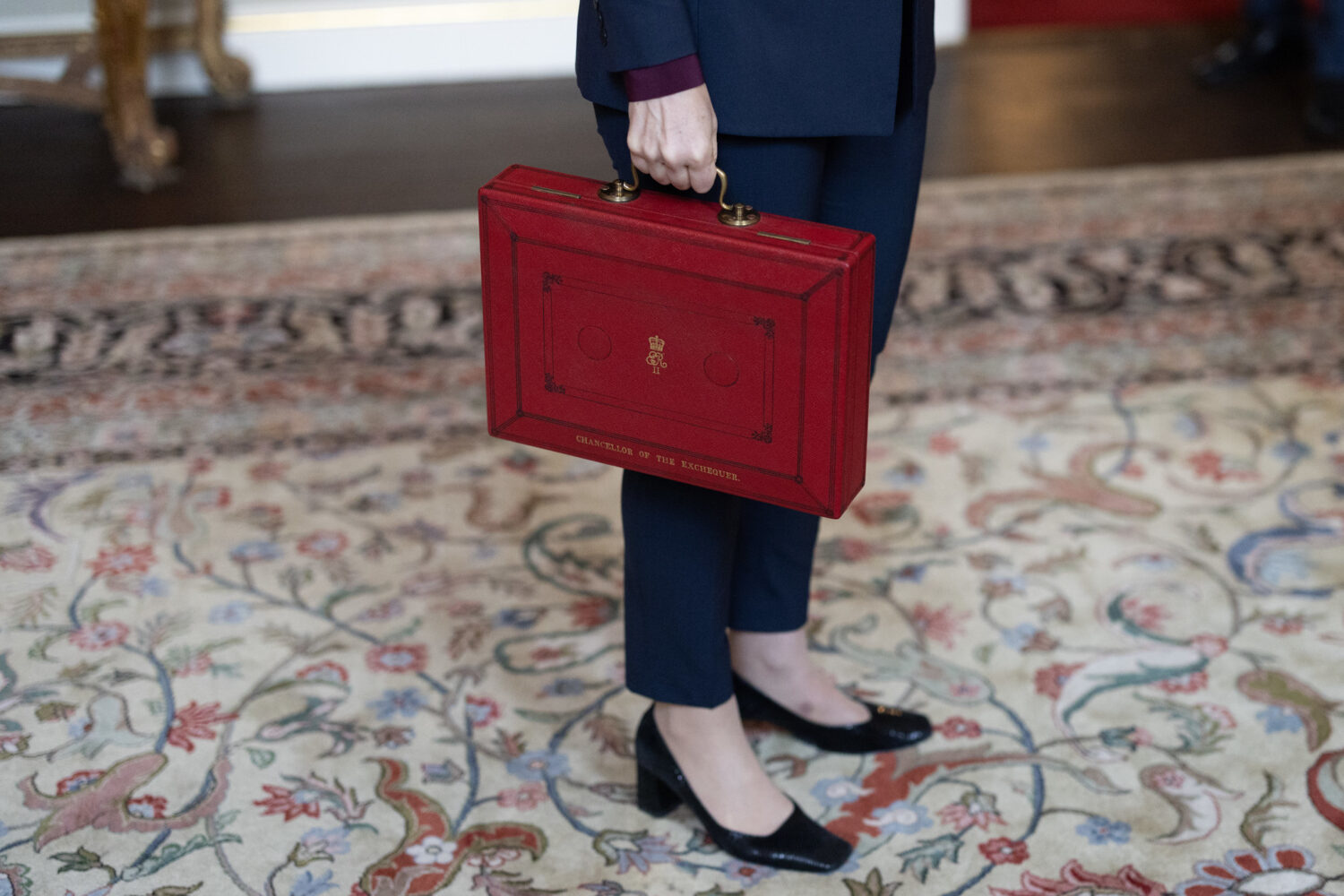Success criteria
Labour's first budget faced up to the three challenges the government must tackle, argues Luke Raikes
At the next election, voters will no doubt be asking themselves Ronald Reagan’s famous question: “are you better off now than you were?”
This week’s budget was the government’s opportunity to ensure that, when the time comes, the answer is a resounding ‘yes’. And, as the government battles to sustain the short-term narrative, it is important to step back and ask the big questions. Did it succeed in this long-term aim? And will Labour reap the political dividend?
Economists often reduce the question of how well-off people feel to a narrow, numerical focus: household disposable income. But that’s not the only way people experience living standards. There are three challenges the government must address this parliament: regional growth, real incomes, and public services.
The first challenge is often the last to be considered: regional growth. In five years, will people have good jobs and affordable homes locally, and feel like the place they live is improving and has a new sense of purpose and pride?
The government’s top priority growth mission will only succeed if it draws on the strength of all regions, and benefits all regions too – we know all too well that simply growing finance in the capital and redistributing the rewards means economic and social failure. And regional economic change has seen a profound shift in living standards for people in all parts of the country, with severe political consequences we shouldn’t need reminding of. Low growth persists across all regions and nations outside the south east, while London and the south east’s overheating housing market is in large part a regional economic problem too.
The budget did address this challenge. It drew on our work at the Fabian Society, giving mayoral combined authorities the flexible spending they need, reforming ‘right to buy’ and putting money towards new social housing. This was underpinned by setting aside some much-needed cash for councils, while unlocking capital spending for vital transport and energy projects. It provided the fiscal muscle behind the government’s wider programme, which again draws on our work, from White Papers on industrial strategy and devolution, to employment rights, planning reform and bus franchising. That said, the employer national insurance rise could be a challenge for some, and makes enforcement and employment status reform all the more important.
The second challenge is more conventional: real household disposable income. In five years, will households have more money in their pocket, after they’ve paid for essentials? And, above all, what did the budget do to address poverty?
Many of the above measures to grow regional economies will also help raise incomes. And the budget was accompanied by increases in the living wage, especially for younger workers. Payslips and VAT remained untouched, as promised. Nonetheless, JRF modelling finds that the average family is set to be £770 a year worse off in 2029 in real terms compared with today, largely due to higher housing costs (in rent and mortgages) as well as a small amount of ‘fiscal drag’ that remains. They also find that poverty is likely to rise over the parliament, unless the government acts.
There was some funding for social care, a downpayment on the National Care Service we at the Fabian Society worked closely with Labour to develop.
Fabian work can help the government choose the right options to address living standards and poverty. We are working to ensure that the government’s actions on living costs, employment and social security are coordinated to shift the dial on people’s living standards. We are also developing pragmatic solutions to child poverty, focused on social security in the early years. We have set out practical, cost-effective ways to reduce the cost of essentials and address the poverty premium. Further work has focused on addressing the spike in pre-retirement poverty; a quarter of 60-65 year olds live in poverty, the highest rate of any adult age group. And forthcoming work will show how to tackle the surprising rise in pensioner poverty under the Conservatives.
Third, and finally, come public services: do people feel like public services are there when they need them? Public services must perform very poorly over a sustained period to become an everyday worry for people, most of whom don’t directly use schools, hospitals, social care, prisons, or asylum seeker provision on a daily basis. But these services have become so poor that this threshold has been reached.
Here, the budget did all that can be reasonably expected of a single fiscal event. The NHS was the big beneficiary, of course. But there was also money for education, criminal justice and asylum alongside the aforementioned funding for councils. And there was some funding for social care, a downpayment on the National Care Service we at the Fabian Society worked closely with Labour to develop.
Far too many budgets over the last 14 years have negatively impacted all households, with the fiscal pain often concentrated among the poorest. But this budget’s net impact on households, via public services, was overwhelmingly positive for all but the richest tenth.
At best, we might get gruff resignation and a sense that it’s probably the best we can do – and better than the other lot
On the whole, this was the budget the country needed, although not everyone will be grateful for it. It was always going to be drawn up in the shadow of the new government’s shocking inheritance: the Conservatives left the country’s finances with an almighty hole. Labour wants to rebuild, and to build anew. But to do so it has to fill in that hole, and this budget does that.
With tax and spend, borrow to invest, and prudence with a purpose, it was a very Labour budget. And it was also a very Fabian budget, delivered by a very Fabian government.
Good policies, then; but what about the politics? The political impact of these challenges is often asymmetrical, in that people will punish failure more than they reward success. If the government fails to deliver, it may well perform poorly at the next election, though a 2005-style result is more likely than a 2010 outcome. It has done all it can for now to avoid that scenario.
And if it succeeds? Well, we shouldn’t expect a great wave of positivity and optimism – regional economies turning a corner, modest income rises and functioning public services aren’t usually a cause for street parties. At best, we might get gruff resignation and a sense that it’s probably the best we can do – and better than the other lot. That might not be inspiring, but that is the reality. It is probably for the best that people don’t invest inordinate amounts of hope in rates of change, and a utopian good life, that are simply unachievable.
So, perhaps we can’t expect people to answer Reagan’s question with that resounding ‘yes’. But if Labour level with voters, as they have in this budget, they may earn the respect and trust to be elected for a second term.
Image credit: HM Treasury via Flickr

